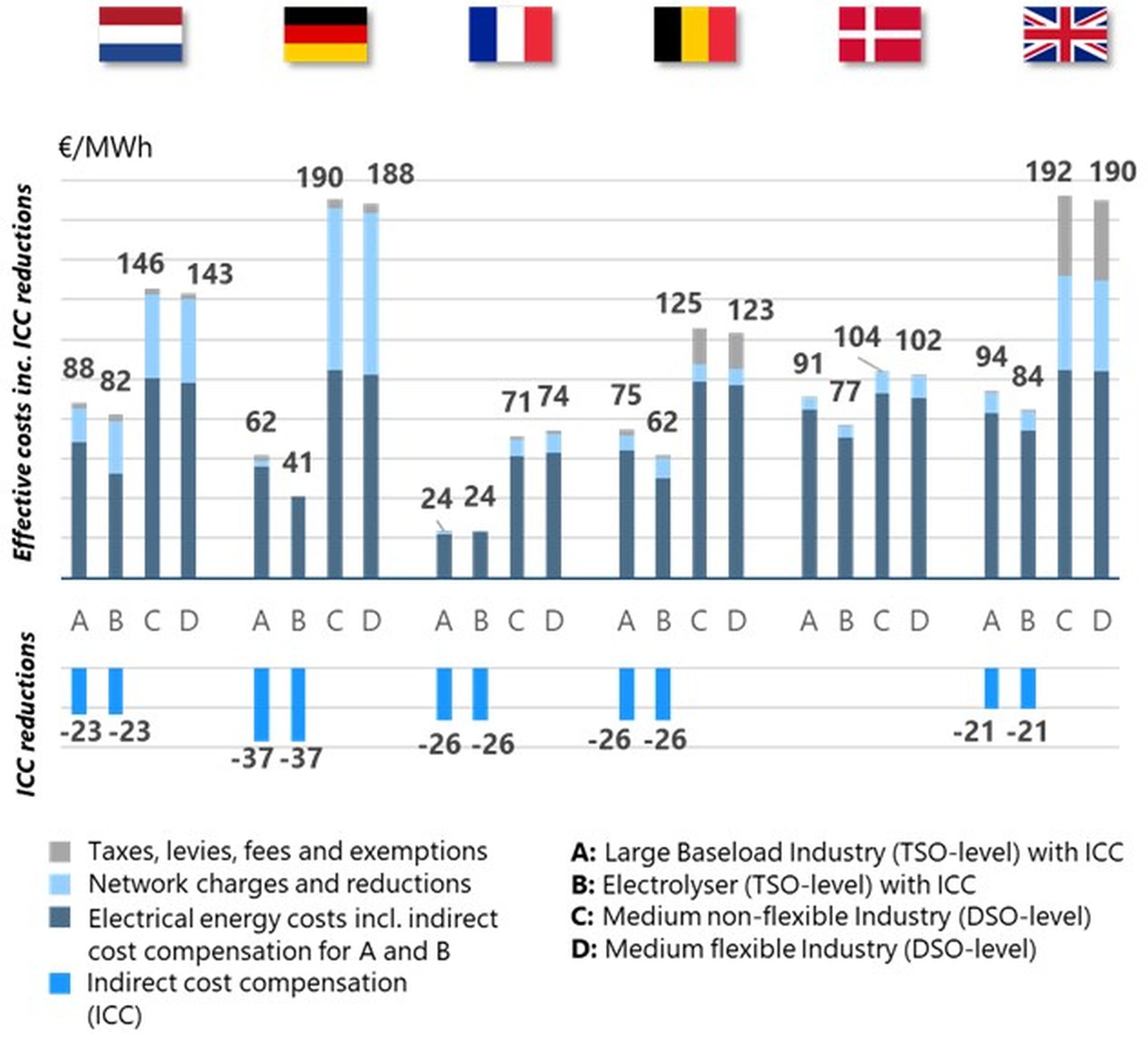On behalf of the Ministry of Climate and Green Growth, we conducted a second comprehensive benchmark study of electricity costs for industrial consumers, updating the study we conducted in 2024. This time, we examined eight countries: the Netherlands, Germany, France, Belgium, Denmark, the United Kingdom, the United States, and China.
The study provides insides into the cost structure of different industrial customers in DSO and TSO level and highlights the significant relevance of taxes, levies, fees and network charges and corresponding exemptions.
The report provides a detailed view on
- network charges, taxes, levies, and exemptions,
- compensation schemes such as the indirect cost compensation (ICC),
- and electricity procurement costs today and expected in the future differentiated by consumer profiles, from large non-flexible industry to flexible electrolysers.
Keyfindings:
- Large industrial consumers in the Netherlands face a clear competitive disadvantage, particularly compared to peers in Germany and France, where generous exemptions significantly lower costs.
- Electrolysers benefit most in Germany, thanks to targeted support measures. In contrast, the Netherlands currently shows the highest costs for these flexible consumers due to limited tariff flexibility.
- Medium-sized industrial users face significantly higher costs than large-sized industries due to less exemptions and higher commodity cost. Here the Netherlands rank also among the countries with the highest cost.
Future Implications: The study forecasts a persistent competitive disadvantage for the Netherlands until 2030 under existing and anticipated regulatory frameworks.
Dissemination of Findings: The comprehensive report has been formally presented to the Dutch parliament and is publicly accessible on the website of the second chamber of the Dutch Parliament: https://open.overheid.nl/documenten/971657a6-8a35-4f18-85d3-4d7a2bbb4707/file
For more information contact: Gerald Blumberg, Christopher Kneip


